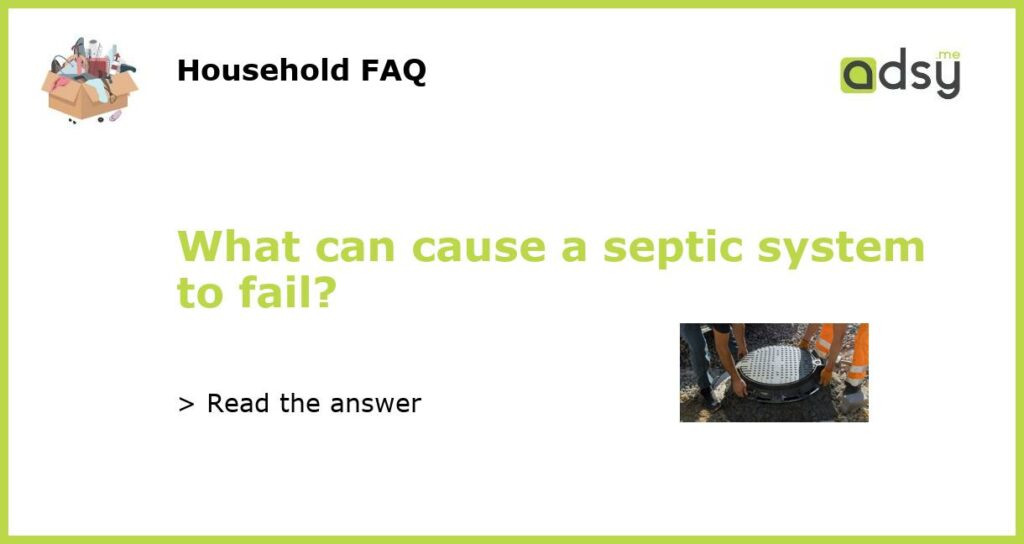5 Reasons Why a Septic System Can Fail
A functioning septic system is essential for ensuring proper waste disposal and maintaining the health and safety of your home. However, there are several factors that can cause a septic system to fail. In this article, we will explore five common reasons for septic system failures.
Lack of Regular Maintenance
One of the primary causes of septic system failure is a lack of regular maintenance. Septic systems require periodic pumping and inspection to remove solid waste and assess the overall condition of the system. If the system is not regularly maintained, solids can build up in the tank, leading to clogs, backups, and ultimately system failure. It is recommended to have your septic system inspected and pumped every three to five years to prevent these issues.
Overloading the System
Another common cause of septic system failure is overloading the system with excessive water usage or the disposal of non-biodegradable materials. Septic systems are designed to handle a specific amount of water and waste volume. If a large amount of water is used or non-biodegradable items such as grease, chemicals, or sanitary products are flushed down the toilet or drained into the system, it can overwhelm the septic tank and lead to system failure. It is important to use water efficiently and only dispose of biodegradable waste in the septic system.
Tree Root Intrusion
Tree roots can also pose a significant threat to septic systems. As trees grow, their roots can extend into the septic system, causing blockages and damage to pipes and tanks. Once a tree root infiltrates the system, it can continue to grow and expand, leading to more severe clogs and damage. Regularly inspecting the area around your septic system for tree root intrusion and promptly addressing any issues can help prevent system failure.
Soil Compaction
Soil compaction can occur when heavy vehicles or structures are placed on or near the septic system drain field. This can cause the soil to become compacted, limiting its ability to properly absorb and treat the wastewater. When the soil is compacted, the wastewater may not be adequately filtered or treated, resulting in system failure. To prevent soil compaction, avoid driving heavy vehicles or constructing structures over the septic system drain field.
Aging Infrastructure
Septic systems, like any other infrastructure, have a lifespan and can deteriorate over time. If your septic system is old or poorly designed, it may be more prone to failure. As systems age, components such as pipes, tanks, and drain fields may become damaged or blocked, resulting in diminished performance and eventual failure. Regular inspections and proper maintenance can help identify and address age-related issues before they cause a complete system failure.
In conclusion, a septic system can fail due to a variety of factors, including lack of maintenance, overloading, tree root intrusion, soil compaction, and aging infrastructure. By taking proactive measures such as regular maintenance, efficient water usage, and proper waste disposal, you can help prevent septic system failures and ensure the continued functionality and longevity of your system.

